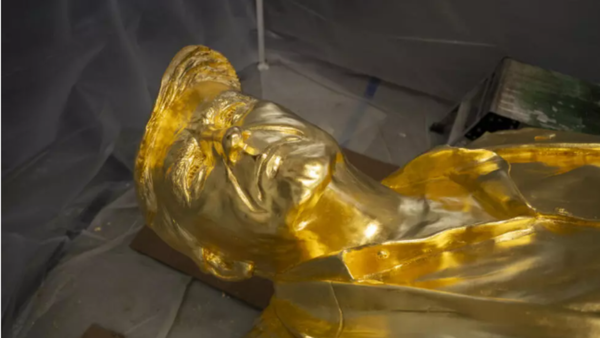Offering gratitude is a courteous way of acknowledging that you have benefited either from people around you in the past, or at present; or from Mother Nature and her varied creations; or been blessed by the Almighty.
During my childhood, my mother taught me to be grateful to the Almighty while praying at a temple, or before a picture of a deity. Feeding birds, animals or even ants in distress is an act of gratitude, often advised by astrologers. My mother would sometimes give me a fistful of grains and ask me to give leave them at an anthill, where hundreds of large ants scurried around. She would also urge me at least once a year to go to a local gaushala (a place where stray cows are taken care of by philanthropists), buy fodder and feed the cows.
There is no set format to offer gratitude, but while doing so, one does get a sense of fulfilment, and a feeling of giving back. After her retirement, my mother would wake at 5 a.m. daily and clean the whole street facing the length of our house, with a small broom. It was her way of offering quiet gratitude – to the neighbourhood for sustaining a sense of social togetherness.
Prof. Reshef Tenne, a noted scientist from Weizmann Institute of Science in Israel, told me recently that for about ten years now, he has been donating about 1% of his monthly income to voluntary, non-profit organisations involved in protecting Nature, assisting sick people, and/or providing food for the disabled. He said, “This is my gratitude to the society which encouraged me to be what I am today.”
Practising gratitude is an ongoing thing for me. I am 77, a retired scientist (ex-Associate Director, BARC), and educationist (ex-Chairman, A.E. Education Society), residing in Mumbai. When I look back at my life, I have benefited on numerous occasions: from relatives during childhood, classmates during school/college days, and professional colleagues at the workplace. It is built into my system to be grateful for these positive actions by those around me.
As a member of a WhatsApp group of my schoolmates, I discuss with them often how we flourished under our schoolteachers, and from the ambience of our school (a heritage institution established in 1915), where the best of facilities, including labs for science subjects, were maintained.
On video/audio calls almost every day, I discuss, with pride, our family lineage with my two elder cousins, aged 79 and 77, and recall the sacrifices of our ancestors, including my mother, who shaped our learning at school/college, and later helped our professional careers.
Giving back
As a gesture of paying back to my profession, I helped about 20 young researchers during my career to secure post-doc positions in Europe, Japan and North America; and facilitated fellowships for PhD students to work in the labs of these countries for extended durations, to help them enrich their research profiles.
I have been publishing articles on some of my benefactors, be they my schoolteachers, my relatives, or my mentors in science, such as the late Prof. O. Kahn from Bordeaux, and the late Prof. E. Fawcett from the University of Toronto. I wrote a vox-pop article offering gratitude to Prof. Eiji Osawa, a celebrated computational chemist from Japan who missed out on getting a Nobel Prize in Chemistry even though he was the first to have proposed the structure of C-60, the fullerene molecule which laid the basis of nanoscience, primarily because he published his work in a Japanese language scientific journal in the 1970s, which went unnoticed.
Overwhelmed by the contributions of French scientists and pioneers, who shaped the modern world, I offered gratitude in the form of a special article.
It was not easy for me to convey how much I had benefited during the 45 years of my active service as a scientist at BARC, when I retired in 2010. I composed a poem to summarise it. The title of this poem was Ummeed se Jyada, conveying that I benefited beyond my expectations from my interactions with BARC colleagues. I recited it on the occasion before nearly 100 senior scientist colleagues of this great institution, who comprise a Scientific Council which sits regularly to review the progress of various programmes run by this research Centre.
It was tricky for me to offer gratitude to a very senior academic who gave a push to my career several times, but from behind the scenes, for good reasons. I am glad I could express my humble gratitude to him in a subtle manner.
If the occasion allows, I show a slide or two about my benefactors in my lectures.
But, how do I show my gratitude to someone who cared for me like an angel all through my childhood in the 1950s? My family went through rough times largely due to financial deprivation, and for several years, a neighbourhood aunty stood like a shield to protect us from hardships. She saw to it that I had the same treatment as her own children. My last meeting with her was when she was 85. She was affectionate as before, as I sat in quiet gratitude before her. She asked a few questions about my family. Each time, it was my cousin, who had accompanied me, who replied, as I was overtaken by emotion and could hardly utter a word. Later, I put all my feelings of gratitude in an article, highlighting that perhaps I survived due to her kindness.
Offering gratitude has a soothing influence on us. At times, you may not get a chance to say thanks to benefactors directly. Then, look around and stand behind those who deserve support, but aren’t getting any. Do so with the same zeal with which someone had supported you when you were in distress. For sure, it will have the same soothing effect on you.
ya_kmi@yahoo.com







